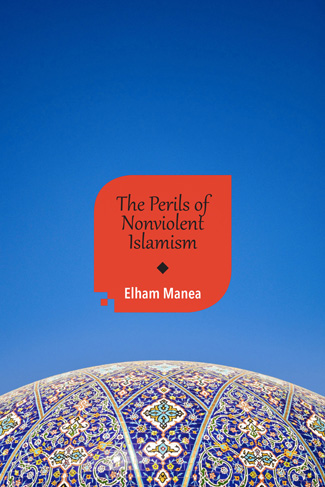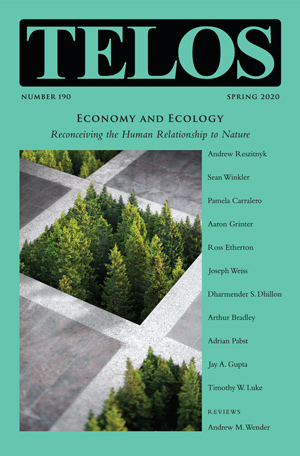In today’s episode of the Telos Press Podcast, David Pan talks with Miles Yu about his article “Escape from Civilization’s Predicaments,” from Telos 201 (Winter 2022). An excerpt of the article appears here. In their conversation they discuss the main problems with using the idea of civilization as a way of understanding today’s geopolitical conflicts; the meaning of ideology and its effect on politics; why it is more important to think of ideology than of civilization as a way of understanding politics; how the inability of Americans to see the importance of ideology in the world has affected U.S. foreign policy; what kind of foreign policy would emerge out of the focus on ideology; why Marxism as an ideology has maintained its appeal both for countries such as China and for U.S. intellectuals; and what strategies the United States has in this ideological conflict. If your university has an online subscription to Telos, you can read the full article at the Telos Online website. For non-subscribers, learn how your university can begin a subscription to Telos at our library recommendation page. Print copies of Telos 201 are available for purchase in our online store.
|
Now available from Telos Press Publishing: The Perils of Nonviolent Islamism, by Elham Manea. Order the paperback edition today in our online store and save 20% off the list price. Also available now in Kindle ebook format at Amazon.com. In today’s episode of the Telos Press Podcast, posted here, David Pan and Russell Berman talk with Elham Manea about her new book.
by Elham Manea Elham Manea’s The Perils of Nonviolent Islamism describes the ways in which nonviolent forms of Islamist fundamentalism in European democracies lay the groundwork for Islamist terrorism. Through a persuasive mixture of autobiography, explanatory frameworks, case studies, personal interviews, and careful readings of source material, Manea details how Islamist groups have exploited the openness of democracies and multiculturalist attitudes in order to create closed Islamist communities. These groups today are transforming Islam in the West into a unified fundamentalist religion that ultimately promotes attitudes that lead to violence. Combining keen social theoretical analysis with critical self-reflection, Manea’s interrogation of Islamism sounds the alarm on a crisis that can no longer be ignored. Elham Manea teaches Political Science at the University of Zurich. Her forthcoming book The Perils of Nonviolent Islamism will be published by Telos Press in the spring and can be pre-ordered today in our store. The following talk was delivered as a keynote speech in German at the Convention of the Schader Foundation in Darmstadt (online) on November 6, 2020. It is becoming difficult lately to turn on the news. And I do not just mean the American presidential elections. The year 2020 was and still is a hard one. COVID-19 has dominated our lives with its limitations. But it has also welded people together in every corner of the world in the fight against a persistent and ultimately deadly virus. This struggle, this common challenge, has united us and yet divided us. We are still irritated by the lockdowns, afraid of their economic repercussions, and divided in our ideological fronts. Times like these are worrying and provide fertile ground for conspiracy theorists and right-wing and left-wing extremist groups. In times like these, our societies can all too easily become polarized, and we run the risk of being trapped in a discourse of division, trapped in identity boxes. “Us” versus “Them.” Over the last fifty years, the West has witnessed a continuous decline in the quality of the state and its activities, along with a cultural deterioration of the public sphere. All OECD (Organization for Economic Co-operation and Development) countries have also undergone a massive dichotomization of private property ownership: An ever-smaller fraction of the population owns a growing share of all non-public assets. According to some estimates, the richest one percent holds 70 to 80 percent of all global private property, while an increasing number owns nothing and is excluded from decent incomes and the means to live a normal family life. Andrew Reszitnyk’s “The Descent into Disanthropy: Critical Theory and the Anthropocene” appears in Telos 190 (Spring 2020): Economy and Ecology: Reconceiving the Human Relationship to Nature. Read the full article at the Telos Online website, or purchase a print copy of the issue in our online store. Individual subscriptions to Telos are available in both print and online formats. Ernst Jünger’s Sturm, published in English translation by Telos Press, is also available in our store. Sean Winkler’s “Practice and Ideology in Boris Hessen’s ‘The Social and Economic Roots of Newton’s Principia’” appears in Telos 190 (Spring 2020): Economy and Ecology: Reconceiving the Human Relationship to Nature. Read the full article at the Telos Online website, or purchase a print copy of the issue in our online store. Individual subscriptions to Telos are available in both print and online formats. |
||||
|
Telos Press Publishing · PO Box 811 · Candor, NY 13743 · Phone: 212-228-6479 Privacy Policy · Data Protection Copyright © 2025 Telos Press Publishing · All Rights Reserved |
||||




